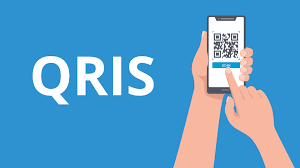The influence of behavioral intention, facilitating condition, and habit on use behavioral of QRIS: a study on mobile banking services
DOI:
https://doi.org/10.31943/gw.v14i3.482Keywords:
Behavioral Intention, Use Behavior, Meta-UTAUT, QRISAbstract
During the Covid-19 pandemic, banking services began to switch to digital services such as Quick Response Code Indonesia Standard (QRIS) services. This study analyse the influence of behavioural intention associated with acceptance and use of technology on use behaviour of QRIS mobile banking services. This study used a modification of Theory of Acceptance and Use of Technology (meta-UTAUT) with the main variables being Hedonic Motivation, Performance Expectancy, Social Influence, Trust, Attitude, Facilitating Condition, Habit, and Behavioural Intention. This study applied a convenience sampling from the non-probability sampling approach with data collected online to bank customers in Indonesia. Data processing uses Structural Equation Modelling (SEM) by carrying out the stages of measuring and testing the proposed hypotheses. Based on the results of the analysis it was found that performance expectancy, social influence and attitude proved to have a significant positive influence on behavioural intention. Facilitating conditions have a significant positive effect on use behaviour. From the results of the study it can be concluded that behavioural intentions and usage behaviour related to QRIS in mobile banking services can be influenced by factors related to social influence, and user needs, and are strongly supported by performance expectations and conditions that facilitate QRIS in mobile banking services. This study contributes to the literature by identifying the behavioural intention to contribute the development QRIS in mobile banking in Indonesia.
Downloads

Downloads
Published
How to Cite
Issue
Section
License
Copyright (c) 2023 Nadia Anisa Putri Wibowo, Nurdin Sobari

This work is licensed under a Creative Commons Attribution 4.0 International License.
The use of non-commercial articles will be governed by the Creative Commons Attribution license as currently approved at http://creativecommons.org/licenses/by/4.0/. This license allows users to (1) Share (copy and redistribute the material in any medium) or format; (2) Adapt (remix, transform, and build upon the material), for any purpose, even commercially.









